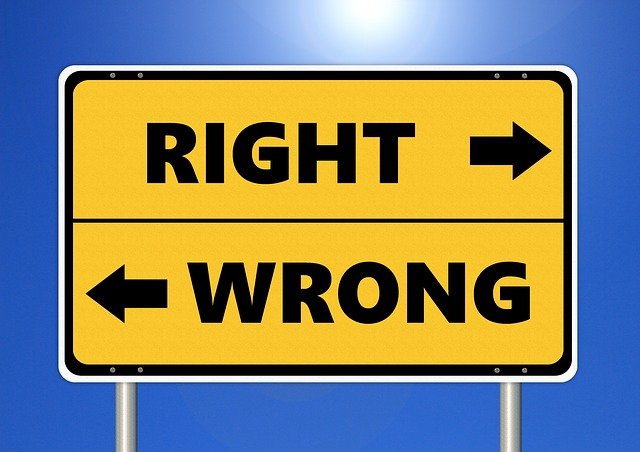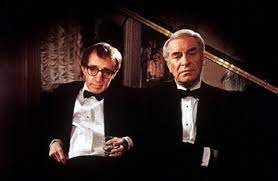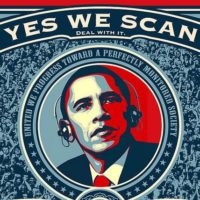

Determining Right from Wrong in a Godless World
It was Voltaire who once wrote “If God did not exist, it would be necessary to invent Him.” Often misunderstood and misrepresented as an ironic quip intended to undercut the existence of God by posing His existence in the hypothetical subjunctive mood (Suck it, grammar nerds!), it is imperative to view Voltaire’s statement within the context in which it was written. Voiced as a refutation of an atheistic article entitled “The Three Imposters”, Voltaire’s widely-disseminated aphorism was intended not to fictionalize God, but rather to assert the importance of a divine being in regulating the moral conduct of otherwise fallible human beings maligned with the intentions of Original Sin. His point here was to suggest that a belief in God was vital to a well-functioning society, as the lack thereof would inherently lead to moral anarchy. God, as Voltaire saw it, keeps us in line by offering up the possibilities of an afterlife of eternal reward in paradise for those who fall in line with the prescribed moral code versus an eternity of hellfire and damnation for the wicked ones who don’t. The choice is up to you.
In describing this social construct to students, I once coined the term, “Divine Systems of Justice”. Think of it as the police force of the divine. Or more precisely, perhaps it is the police and criminal justice system all rolled into one. The fact is that most people are defined by the conventional levels of moral conduct as outlined in Kohlberg’s Stages of Moral Development. In stages 3 or 4, people determine their moral conduct and adhere to a prescribed code of moral choices based upon a desire to avoid disapproval by others or censure by authorities. In other words, they fear external repercussions for their actions. For many people in society, they don’t engage in criminal or otherwise immoral behavior for fear of being caught. I feel fairly certain, for example, that Charlie Sheen would steal drug money from his own mother if he didn’t think the police were watching him from his driveway. But that’s just it- what if you don’t get caught?

Woody Allen posited this hypothetical in his philosophically fascinating film Crimes and Misdemeanors back in 1989. In one of the plot threads of that movie, Martin Landau plays an affluent doctor who hires a hit man to off his mistress after she threatens his professional and marital status by suggesting that she is going to inform Landau’s wife if he refuses to leave her. At first, Landau’s character is beset by the overwhelming dread of being jailed for his crimes, but soon thereafter, the murder is pinned on a meaningless drifter with a rap sheet longer than, well, Charlie Sheen. Released from the fear of repercussions during this lifetime, the doctor then pivots to a new set of concerns: what about the afterlife? Raised as a Catholic, he begins to imagine an eternity spent atoning for his sins. After all, the criminal justice system here on Earth may be fallible, but God, like the ever-watching eyes of Dr. T. J. Eckleberg looming over the Valley of Ashes in The Great Gatsby, are omnipresent. They see everything. While one may escape prosecution during this lifetime, no one escapes the moral condemnation of the divine. That’s where Voltaire’s message sinks in. For those attuned to the positive and negative reinforcement offered in Kohlberg’s conventional stages of moral development, God is the catch-all that is needed for those who think they can get away with it. You might not pay for your crimes now, but you will spend all eternity doing so, and it is that fear which Voltaire suggests is necessary to keep people in line, adhering to the moral code of conduct that society proscribes.
But what if you don’t believe in God? What then? One can imagine a raging bunch of atheists run amok, sewing mass chaos and disruption across the entire fabric of our society, what some on the lower end of Kohlberg’s developmental scale might label a Grateful Dead concert. Left to their own devices without an overarching construct of moral ethics or a system for its rigid enforcement, these heathens would be free to do whatever they want, as long as they don’t get caught. Liberated from the restraints of societal indoctrination for moral norms, these individuals can do as they please. But that doesn’t mean that they will live without a moral compass. What it means is that they will live a life defined by their own moral precepts.
Sure, for some of them that means a form of hedonism, an adherence to nothing other than the fulfillment of the pleasure principle of the self. This seems to be where Keith Richards is at, and hey, it doesn’t look all that bad. Life is short, so get the most out of it while you can, or as I once phrased it in the very first installment of TRUTH, Carpe F’ing Diem. But while that plan may sound all well and good, it blithely ignores the impact one’s moral choices and behaviors have on others.
In the final (or “postconventional”) stages of Kohlberg’s hierarchy of moral development comes the advancement of individual principles of conscience. Freed from a rigid adherence to society’s moral code of conduct, a system that is often arbitrary, capricious, and to be bluntly honest, just plain fucked up, we as individuals are able to devise our own theory for distinguishing between right and wrong actions with nothing present to enforce said precepts other than our own inherent conscience. However, because it is a system of our own making, we are more likely to actually follow it- no God or criminal justice system needed. Simply the idea of doing what is right because we know it is right.
And that is where I have come up with what I like to call “Universal Hedonism”, a moral system rooted in the pleasure principle of hedonism but applied with a universal perspective that does away with hedonism’s inherently selfish bent. Universal Hedonism recognizes the need to live for the moment and prioritizes actions that create pleasure, but the emphasis here is not solely upon the pleasure created for the individual but rather for the universe as a whole. For each moral choice we encounter, one must calculate all the potential impacts of each inevitable outcome and determine the relative benefit or harm created by said actions for all effected recipients, including, but not exclusively so, the individual actor themselves. A calculus of the pluses and minuses are then tabulated and weighed against the other potential courses of action with the moral actor opting for the choice that creates the most positive impact on the world around them.
If two completely unattached people meet in a bar and go home together with neither wanting any strings whatsoever, then that is a perfectly moral act. They have fucked the world into being a slightly better place. But if one of those people actually has a partner at home who is devastated by the revelation of the infidelity, the pleasure created by their sexual tryst is vastly outweighed by the emotional ravages of the betrayal. It may bring me immense joy to punch someone in a MAGA hat, but that joy is outweighed by the pain, sorrow and bewilderment I have inflicted upon another. In other words, I may want to, but that shit just ain’t right.
With religion continuing to erode across the globe as the percentage of the population that describe themselves as atheists rising as high as 16%, Voltaire is probably right that we need something there to fill that void. Without God to restrict our moral choices and compel our adherence to a societal code of conduct, we cannot simply live by the motto of “Do whatever the Hell you want”. Instead of relying on God or society to dictate our choices and tell us what to do, we must fend for ourselves in the wild jungles of moral behavior and devise our own moral systems. In the end, mine comes down to one singular precept: Make the world a better place. What, my friends, will yours be?
Steven Craig is the author of the best-selling novel WAITING FOR TODAY, as well as numerous published poems, short stories, and dramatic works. Read his blog TRUTH: In 1000 Words or Less every THURSDAY at www.waitingfortoday.com



